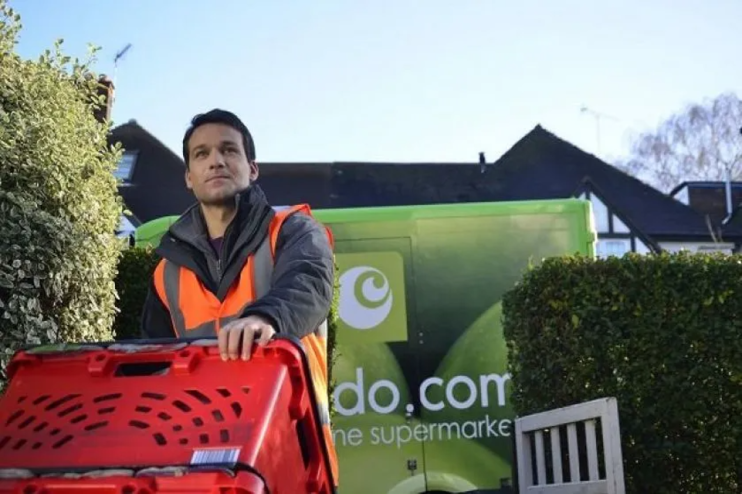
Ocado has maintained its position as the fastest growing grocer for the third month in a row, as efforts to cut prices continue to pay off.
The M&S linked food tech firm saw sales up by 12.4 per cent in the 12 weeks to the middle of May.
According to new figures from Kantar, the middle class favourite out performed the total online market which saw sales increase by 5.4 per cent.
Outside of the capital, Ocado saw its strongest growth in the south and east of England where one in twenty households shopped at the retailer in the latest 12 weeks.
Ocado boomed during the pandemic when shoppers’ access to physical retail was restricted, but it struggled to keep up the moment when lockdown laws were eased.
Tuesday’s reading shows grocery price inflation is gradually returning to more normal levels.
It’s now sitting just 0.8 percentage points higher than the 10-year average of 1.6 per cent between 2012 and 2021, which is just before prices began to climb.
Fraser McKevitt, head of retail and consumer insight at Kantar, said: “Typically, an inflation rate of around three per cent is when we start to see marked changes in consumers’ behaviour, with shoppers trading down to cheaper items when the rate goes above this line and vice versa when the rate drops.
“However, after nearly two and a half years of rapidly rising prices, it could take a bit longer for shoppers to unwind the habits they have learnt to help them manage the cost of living crisis.
He added: Own-label lines are proving resilient, for example, and they are still growing faster than brands, making up over half (52 per cent ) of total spending.
“Sales of premium own label ranges continue to increase too, up by 9.9 per cent compared with a year ago.”
Despite pressures easing, fierce competition between grocery chains remains.
Lidl reached a new record-high market share of 8.1 per cent, thanks to its bakery counters, as well as its loyalty scheme.
Freshly baked bread, cake or pastry made it into a quarter of baskets at the discounter over the latest 12 weeks, and coupons through the Lidl Plus app helped push volume sales of in-store bakery items up by over 40 per cent.
Britain’s biggest grocer Tesco now takes 27.6 per cent of the market – an increase of 0.5 percentage points since last year, marking its largest annual share gain since January 2022.
